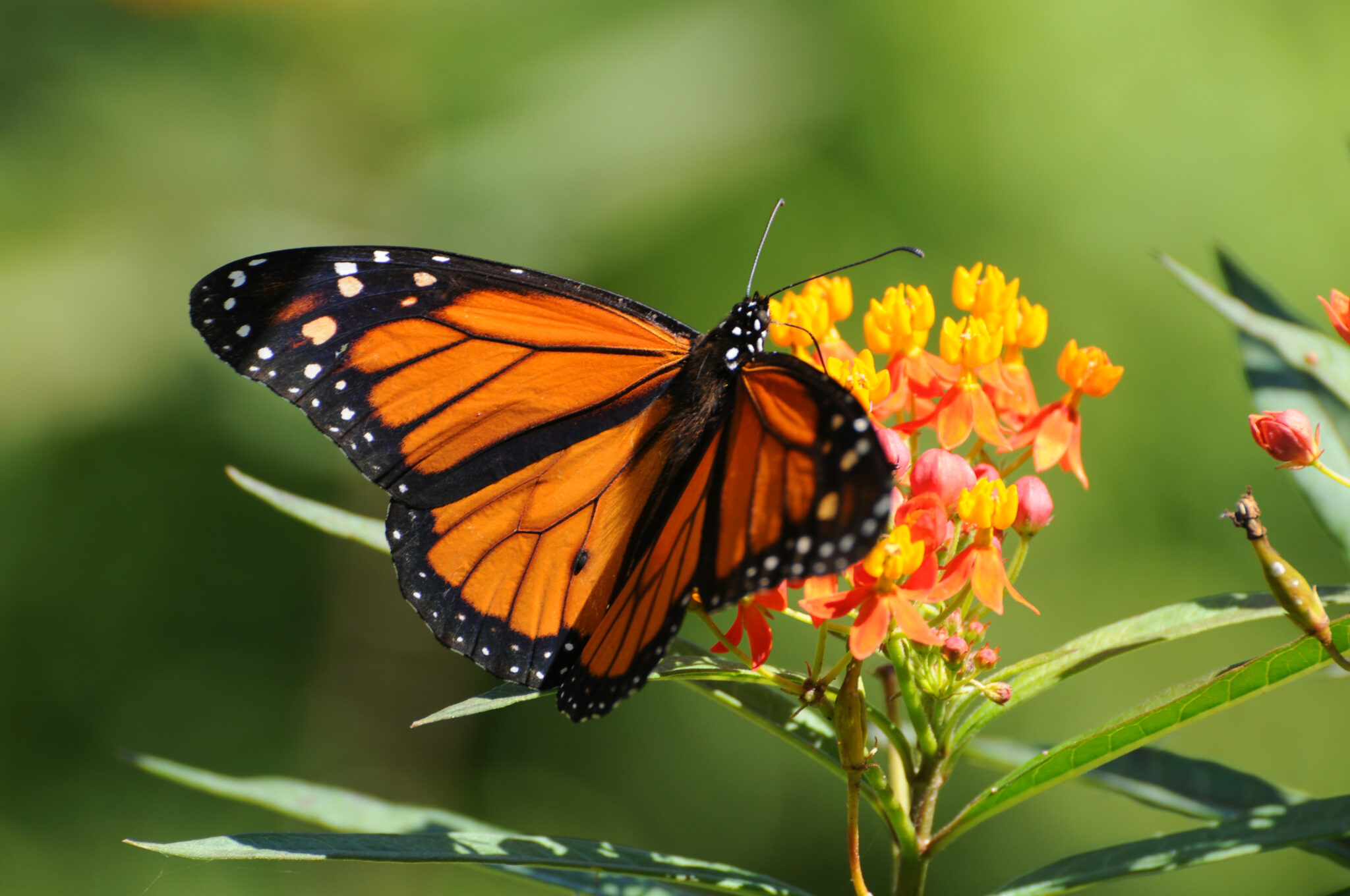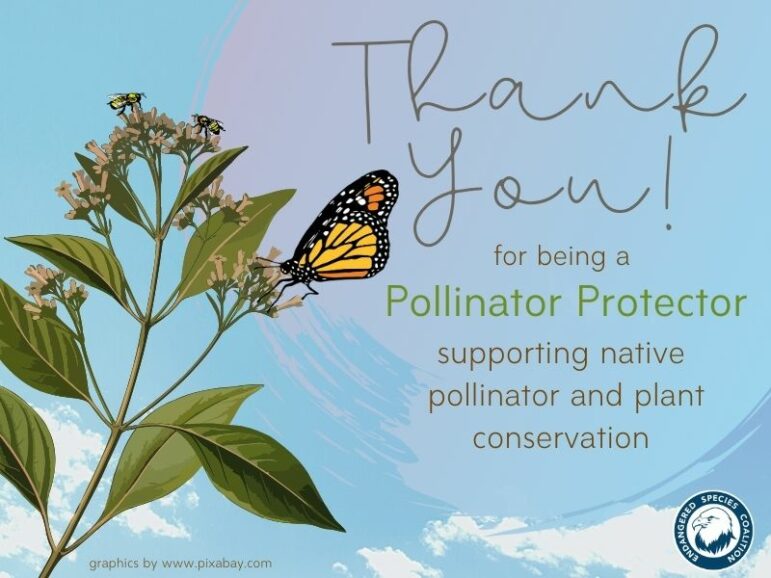
Pollinator Protectors:
Creating HaBitat for Imperiled Pollinators
The Endangered Species Coalition creates habitat for native pollinators by putting local, native plant species in the ground at planting sites across the country. We’re working to address the leading cause of global species decline – habitat loss (land use change) – by actively increasing habitat for imperiled native pollinators, including the Monarch butterfly. Our plantings incorporate a range of species, including milkweed, the host plant for Monarch butterfly larvae, nectaring plants, and shelter plants, creating dynamic habitats where pollinators can survive and thrive.
The creation or restoration of planting sites engages community partnerships of all kinds: farms, land trusts, schools, faith organizations, wildlife refuges, national historic monuments, and many, many other kinds of organizations. Community collaboration is essential to this work, reflecting the linked relationship between people and pollinators. Pollinator Protectors supports and spotlights ways local individuals and groups can develop healthy habitats benefiting humans and non-human wildlife and plants, all at the same time.
We support local native plant nurseries and rely on the expertise of native plant societies and Endangered Species Coalition Member Groups, along with guidance and knowledge from planting site partners, to select and install plants enhancing habitat for a rich diversity of species. Our native pollinators include species as wide ranging as bees, beetles, butterflies, moths, bats, hummingbirds, and more. Through collaboration and actions, we’re working to support Monarch butterflies and pollinators of all types, raising the profile of our unique native plants and native pollinators.
Since 2019, Endangered Species Coalition has partnered with DC Natives, creating native plantings for pollinators in communities in Washington, DC. Check out our newest video, featuring storytelling by community members about how this innovative project has impacted their neighborhoods.
For another storytelling example sharing the impacts of our Pollinator Protectors native plantings, watch this video of Endangered Species Coalition’s collaboration with the Ada County Highway District and Draggin’ Wing High Desert Nursery in Boise, Idaho.
There, we are installing native plants in stormwater basins to protect water quality, provide habitat for plants and wildlife, and support local communities.
Beginning in 2016, ESC has provided mini-grants to partners developing new or expanding existing plantings for pollinators. The Pollinator Protectors project currently has two funding and planting cycles: spring and fall. Reimbursement funding is applicable to the purchase of native plants, including milkweed. For more information, including eligibility, please contact Jeanne Dodds, Creative Engagement Director jdodds at endangered.org


